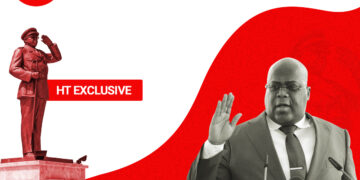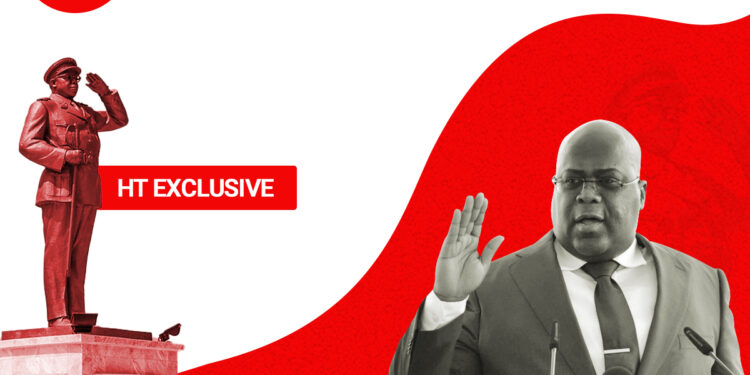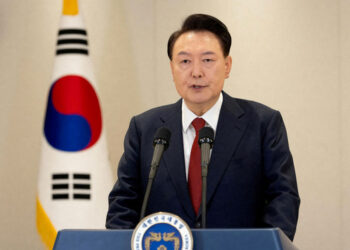By Elie Mutangana, Kigali
In a recent five pages report unveiled by the United Nations Secretary Security Council, Secretary General Antonio Guteres expressed concerns over sharp security deterioration as the UN’s peacekeeping mission in DR Congo plans for departing the country this December, following the expiry of its mandate and unwillingness to the extension between the body and Congolese Government.
The mission with 15,000 soldiers and police officers will start “an accelerated withdrawal” after over 25 years of operations in the resources-rich country.
“In current, highly charged political context, which is fuelled by the security and humanitarian crisis in the territories affected by M23 insurgency, MONUSCO continues to be focused of popular discontent and frustration over its perceived inability”, reads the report.
In July 2022, Congolese protesters orchestrated a violent demonstration targeting MONUSCO personnel, premises and assets in eastern Democratic Republic of Congo, prompting the Heads of State to the re-evaluation of joint transition plan and advance the mission’s withdrawal from the country.
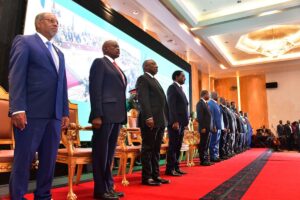
At instances, several MONUSCO Offices in some parts of the country closed doors. During the spate of violence, 36 civilians and 3 peacekeepers were killed eventually.
Despite of the current situation, the Independent National Electoral Commission (INEC) and the Government remain committed to holding elections on December 20, 2023 – in accordance with the constitutional timeline- which, President, Felix Tshilombo Tshisekedi is looking for the second seat.
However, the report shaped that opposition leaders have expressed concerns about the perceived lack of transparency of the voter registration process. They denounced it to be tainted by irregularities and allegedly favouring the ruling majority.
On the other hand, Guteres, claimed that its 25 years lifespan in DRC has yielded tremendous achievements, although the Congolese Government blamed the mission for failing to achieve its key priorities, including the protection of civilians, disarming armed forces, reintegration and stabilization.
The situation was worsened by the wake of the M23 rebels in north Kivu.
The rebels have seized large swathes in the Rutchuru, Masisi and Nyiragongo territories.
Several reports by UN experts accused the rebels of establishing illegal administrations, imposing taxes to civilians, as well as executions.
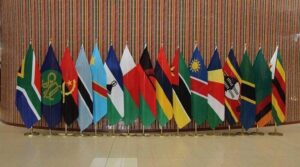
The protesters again eventually demonstrated and posed accusations to neighbouring Rwanda of backing the rebels – yet the government in Kigali continues to decline the accusations – and cited the threats concerns the Congo shaded the Rwanda’s opposition armed militia, FDLR.
Current Security Situation In Congo
According to the report, the challenges facing DRC and its people remain daunting. In the past year, the political and security situation has deteriorated sharply, creating a severe humanitarian and protection crisis in DRC.
Upon taking over office in 2018, the Congolese President tried to pacify the situation in eastern Congo. However, the rebirth of the M23 rebels brought frustrations and frayed the relations between the DRC and Rwanda. The tensions have remained high, as illustrated by security incidents at the border and continued confrontational rhetorics between senior government officials of DR Congo and Rwanda.
Security has deteriorated sharply in Ituri and North Kivu province. As a result of the departure of the Government forces, FARDC in Ituli province to counter M23 rebels in Rutchuru and Masisi territories-where the rebels have conquered – consequently created a security vacuum, hence allowing several armed militias to re-establish themselves in the place, posing threats to civilians and peacekeepers.
For example, in Irumu and Djugu territories, the militias seized 70 percent of the territories and posing security threats to civilians.
The perceived limitations on the UN mission’s ability to monitor human rights abuses in the territories under control of rebels groups, numerous reports of execution, sexual violence and extortion by the armed groups have been reported by several human rights organs.
As a result, the humanitarian situation has deteriorated dramatically, with hundreds of thousands of civilians forcibly displaced. The humanitarian actors tried to overstretch the assistance delivery to those in need but could not reach victims
The report denounces that the displacement of civilians towards North Kivu’s capital, Goma and its surrounding has put local community under strain and affected the Mission’s presence in city.
Similarly, in South Kivu province, inter-ethnic tensions around land remain high, particularly in Uvira and Fizi territories. The situation has fuelled hate speeches and incitement to violence based on ethnicity.
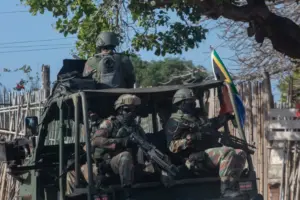
Banyamulenge communities and other Kinyarwanda-speaking communities were hunted. People were killed and their properties were looted by other ethnic communities.
Human rights organization intervened and warned of Genocidal signals in case the situation is not appropriately resolved by the concerned authorities.
The orchestrator of the violence – with hate language – were accusing the victims of betrayal and supporting M23 rebels – a group which is perceived to have support from Rwanda, due to the moral similarities with Rwandans.
Eventually, the data showed by the report, indicated that currently, 28 percent of the population in North Kivu province and 36 percent in Ituli are displaced.
Between 2021 and 2022, gender-based violence increased by 23 percent countywide and by 73 percent in North Kivu alone province alone.
The United Nations Children’s Fund and partners assisted 8,100 survivors of gender-based violence countrywide in 2022, compared with 3,500 survivors in 2021.
EAC’s Forces Expiration And Entry Of SADC Troops In Congo
Several times, the Congolese Government denounced the unwillingness of the East African Regional Forces (EACRF) to fight the M23 rebels that had occupied a large area of control.
Though the EAC force explained that the principal aim in Congo was to enable the ceasefire and peace talks, DR Congo seemed unconvinced and had expected immediate attack by the forces to neutralize the rebels.
DR Congo started to signal reluctance to extend the forces mandate as it was approaching the expiration.
Throughout the EACRF stay in Eastern Congo, it managed to repatriate the M23 from some swathes that were under its control and managed to call for ceasefire between the two sides.
Despite this, the military clashes between the sides kept recurring.
Earlier in June, the forces endorsed the extension of the second term until this December- although its former Commander, Jeff Nyagah had resigned – citing safety concerns after unknown Congolese people threatened him. He was replaced by Maj-Gen Alphaxard Muthuri Kiugu.
Just recently, the Congolese Government entered an agreement with the Southern Africa Development Community (SADC), to deploy troops in the country to complement the existing troops and replace the EACR, MINUSCA if Congo remains on the decision of not extending the mandate.
During the 43rd Ordinary Summit of SADC heads of state, they concluded that the troops will shortly be deployed to Eastern DRC to complement other troops or compete for Congolese impressions.
DRC has been a member of SADC bloc. In 2021, it joined the EAC bloc as well, which legitimated the EAC to send its integrated troops.
SADC has drawn military reputation from the recent deployment in Mozambique’s Cabo Delgado that brought calmness and stabilization in Mozambique, alongside Rwandan Forces, after countering Islamists militants.
“We will continue to work on finding the best paths to peace in the DRC, in close co-ordination and consultation with the other mechanisms currently in place to resolve this intractable conflict,” said Angolan President Joao Lourenco at the summit.
Furthermore, DR Congo also has recently forged bilateral defense agreement to Kenyan Defence Forces (KDF) to provide military instructions to its arm, FARDC to respond to its security complexity.
